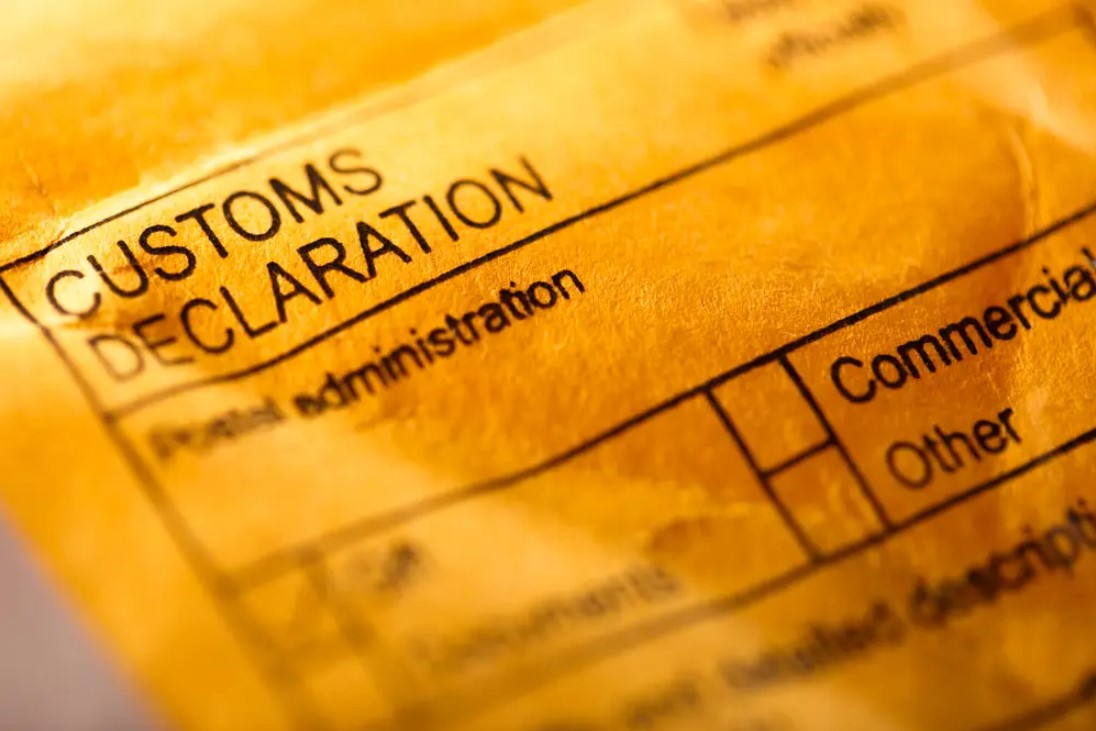The Department of Agriculture and Water Resources works with industry, the community and our state and territory governments to maintain Australia’s clean and wholesome food supply, both at home and abroad. Australia’s biosecurity system protects our human, plant and animal health by reducing the risk of diseases and unwanted pests arriving in the country. Because we all benefit, we all also have a role to play.
If you’re planning a business trip overseas and will be returning home after the end of the trip, you should be aware that there are quarantine laws for business travellers as well as those travelling overseas for other reasons.
Why is it important to declare goods?
Australia has strict laws relating to the importation of certain goods to ensure the minimisation of biosecurity risk to our unique environment, tourism industry and our agricultural industries. This means that if you are travelling overseas for business or pleasure, you need to declare certain foods, animal products and plant material upon your return.
In terms of these Australian quarantine laws, when you declare these goods they are checked by a Department of Agriculture and Water Resources biosecurity officer who will determine if they’re allowed into the country.
How do I go about declaring goods?
In terms of quarantine laws in Australia, if you are returning from a business trip overseas you will be given an Incoming Passenger Card before you arrive back in the country. You must comply with the requirements in terms of providing information, as giving misleading or false information is a serious offence.
If you are carrying goods that may pose a biosecurity risk, you must mark YES on your card. Failure to do so or if you make a false declaration will mean you may be subject to civil penalties and you may be prosecuted. This can involve fines of up to $420,000 and imprisonment for up to 10 years. However, you will not be penalised under the Biosecurity Act 2015 if you declare all hazardous goods, even if they are not allowed into Australia.
A Department of Agriculture and Water Resources biosecurity officer may also inspect your baggage and your declared goods even if you don’t declare any during your border clearance. This can involve the use of an X-ray or a detector dog.
What sorts of items do I need to declare?
In terms of quarantine laws for business travellers, you must declare certain food, animal products and plant material. Here is a list of items that need to be declared, however, there may be other items outside of these. Make sure you check the Biosecurity section of the Department of Agriculture website for more information before you leave for your business trip.
Food
- airline snacks and food
- raw food, cooked and commercially prepared food and ingredients
- dried vegetables and fruit
- rice and instant noodles
- packaged meals
- herbs and spices
- remedies, tonics, herbal teas and herbal and traditional medicines
- snack foods
- honey and other bee products
Dairy and egg products
- infant formulas
- dairy products (both fresh and powdered) including cheese, milk and ‘non-dairy’ creamers
- all dried, whole and powdered eggs and egg products including mayonnaise
- egg products including pasta and noodles that are not commercially manufactured
- Poultry, meat and seafood products
- Meat including dried, fresh, cooked, smoked, frozen, salted or preserved from all animal species
- Salami, sausages and sliced meats
- Fish and other seafood products
Seeds and nuts
- Popping corn, pinecones, nuts, seeds, birdseed
- Cereal grains and ornaments that include seeds
- Fresh fruit and vegetables
- Frozen fruit and vegetables
Plant material
- Live plants including cuttings
- Tea containing fruit skin, seeds, fruit skin and fruit pieces
- Remedies and medicines containing seeds, herbs, fungi, bark and dried plant material
- Potpourri and fresh and dried flower arrangements
- Dried leaves and herbs
- Handicrafts containing nuts, seeds, pine cones, corn, bark, grapevines, straw, moss or other plant material
- Wooden goods
Live animals and animal products
- All birds, birds’ eggs and nests, mammals, reptiles, fish, insects and amphibians
- Bones, feathers, horns, wool, tusks and animal hair
- Hides, furs and skins
- Stuffed birds and animals
- Coral and shells including souvenirs and jewellery
- Beeswax and other bee products
- Used animal equipment including medicines and veterinary equipment and medicines
- Meat trade or shearing tools, tack and saddles and bird or animal cages
- Pet food including rawhide chews and canned products
- Handicrafts and rawhide articles including drums
Other items
- Biological specimens including tissue culture
- Hobby and craft lines made from plant or animal material
- Used camping and sporting equipment including tents, hiking boots, footwear, bicycles and golf equipment
- Used fishing equipment or freshwater watercraft including nets, rods, kayaks, waders, life jackets and paddles
- Toys containing sand, straw, cotton waste or water
What happens to goods you declare?
Goods will be inspected by a biosecurity officer who will determine the level of biosecurity risk that is associated with your goods. You may be asked to provide information or documentation to help them determine that risk. In many instances, goods you declare will be low risk and they will be returned to you after inspection. However, if you have any goods that present an unacceptable level of biosecurity risk, they’ll be managed according to the Biosecurity Act 2015. Depending on the risk, you may:
- Have to pay for the goods to be treated to reduce the biosecurity risk in processes like fumigation and gamma irradiation,
- Have to pay to export the goods from Australia, or
- Your goods will be destroyed.
The Department of Agriculture and Water Resources makes every effort to minimise damage caused as a result of treatment, however, they won’t accept any liability for damage that might occur to your goods during export or treatment.
In terms of Australian quarantine laws, if you think that any goods you are bringing back into Australia may need an importation permit, the Department of Agriculture and Water Resources Biosecurity Import Conditions system (BICON) can assist. However, even if you do have a permit, a biosecurity office will still assess whether the importation permit complies with certain terms and conditions.
What about quarantine laws across state borders?
In addition to having controls on goods that can enter Australia from overseas, you also need to abide by rules and regulations about the movement of goods between or within states. This is because diseases, weeds and pets can travel with you when you are visiting different parts of Australia. There are restrictions on what you can take across state and quarantine borders and these differ depending on where you’re travelling from and where you’re going.
For example, if you are travelling to NSW on a business trip from Queensland, you are not allowed to carry soil, banana planting material, citrus plants, grapevines or potato planting material. If you don’t abide by Queensland quarantine laws or any other state’s laws for that matter, you can face hefty on-the-spot fines.
You’ve returned from your overseas business trip with all your souvenirs on board. Time to head home! Contact Hughes Limousines on 1300 615 165.


 1300 615 165
1300 615 165







 Secure Payments
Secure Payments
